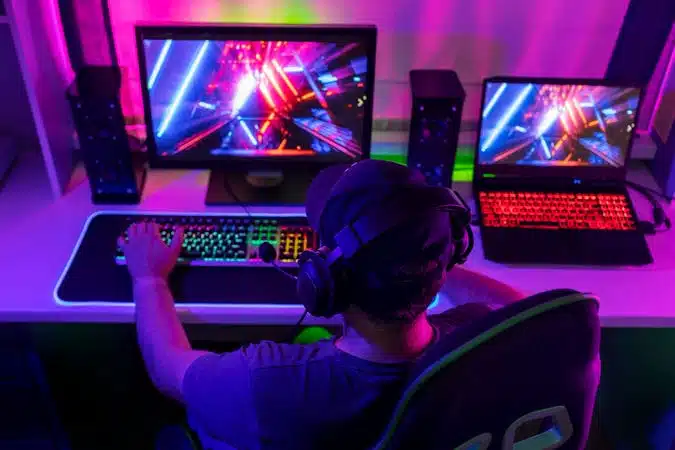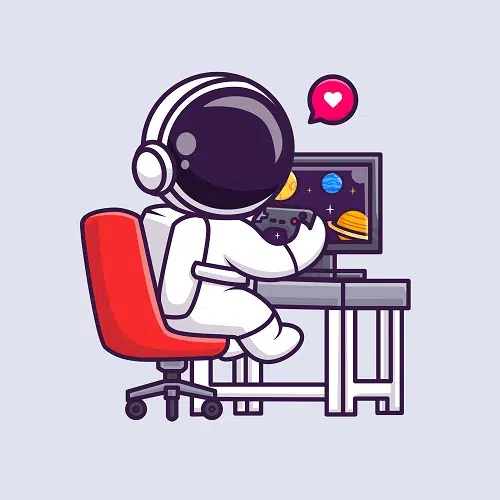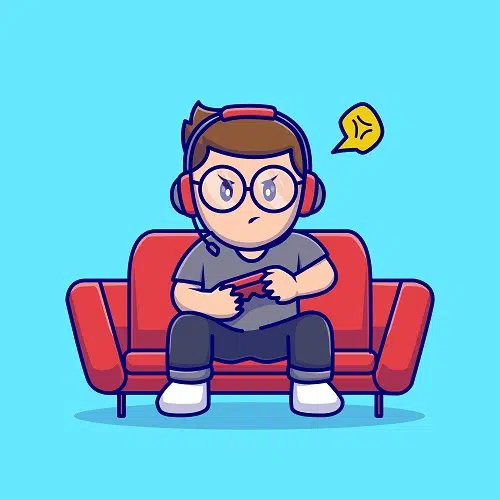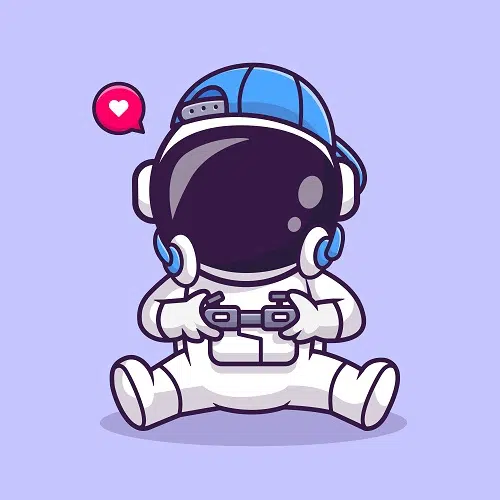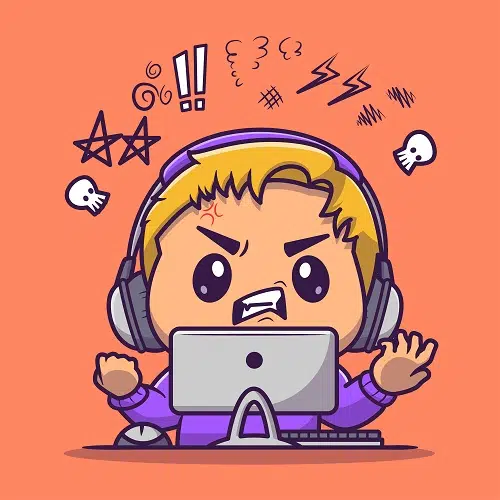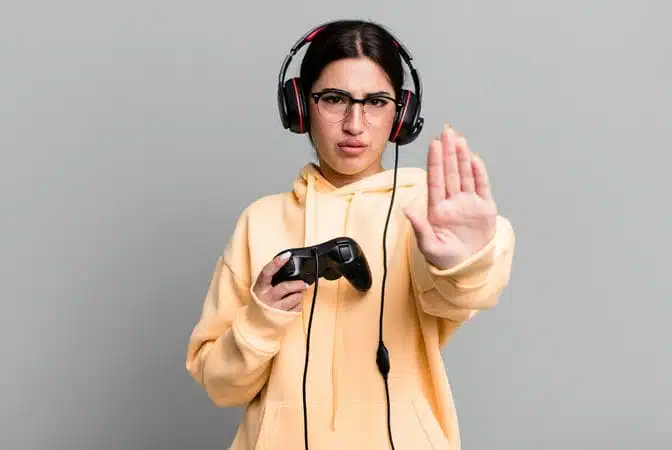Video games are a favorite pastime for millions of people worldwide, allowing players to slip into another world for hours at a time. However, there is a great deal of talk surrounding the repercussions that constant video game playing can have. In fact, some people do not know how to moderate their video gaming, which can be dangerous.
While video games can offer relaxation from everyday stresses, players can also use them as a means to escape from reality. Since many popular video games feature violent themes, players can associate violence with acceptable, or even fun, behavior. Read on to better understand the extremely negative impact video games can have.

Why Should Gaming Be Banned?
There are many reasons why gaming should be banned from their problematic content to legitimate health concerns. In spite of that, video games will not be banned, due to the unconstituational nature of it. However, regulating video games more strongly might stem some of the negative side effects that gamers experience.
As for what that means and what will happen in the future, that is still uncertain. It is not even certain how soon such changes will go about, especially without knowing how fast the industry will grow.

Better Video Game Regulation
Video games are rated voluntarily from within the video game industry. Outside governmental interference has not been successful in regulating video games due to questions of constitutionality and government censorship. Private companies and citizens could take it upon themselves to regulate the industry more strongly.
- Regulation by private companies
- Pleas to video game developers
- Boycotts by private citizens
Private citizens and companies have a say in what content succeeds on the market. If enough like-minded people agreed to regulate the video game companies themselves, there might be a shift in how video games are created and marketed.

Restricted Access to Video Games in the Home
Many questionable video games end up in front of children because their parents or guardians do not pay close enough attention. Before you purchase a game for your child, be sure you have researched it thoroughly and know the type of messages it includes. Be clear about what kinds of video games you will and will not allow.
- Be aware of what video games your child plays.
- Limit access to content you do not wish your child consuming.
- Have healthy conversations about these limitations.
In today’s world, many video games are digital. It is not as easy as it used to be to keep an eye on your child’s video game library because there are not as many hard copies lying around. However, if you are the one providing payment for games, you are still able to research them before you give your credit card information for a purchase.
Problematic Content in Video Games
Video games contain all sorts of content. Obviously, there are wholesome video games that are suitable for all ages. However, the violent and adult themes in video games have been some of the primary causes for concerns over the last several years. This problematic content is why many have called for the banning of certain games.
In fact, with the addition of technologies such as virtual reality (VR), there is an even more pressing reason to consider whether some content or games need to be banned.
Extreme Violence in Games
Critics of video games have claimed that the abundance of hyper-violent video games is making people of all ages more violent. They attribute the rise in mass-shootings, especially those that take place in schools, to the popularity of first-person shooter games. There are many fears surrounding what effects violent video games can have.
- Increased aggression and violent tendencies
- Desensitization to violence
The argument that violent video games lead to violence in the real world has been raging for decades. People who spend a lot of time playing violent video games might exhibit antisocial behaviors, including lashing out with increased aggression. It also might cause players to see flippant acts of violence as acceptable or normal.
It is also possible that people who see violent acts all the time in video games might become desensitized to them. It is not natural to regularly see violence and death, and it is important that these things remain significant and impactful. Allowing them to become commonplace risks losing touch with humanity.
A major argument is that shooting games have led to increased mass shootings, particularly in schools. Shooting like these typically occur among teenagers who bring guns to school to shoot and kill their classmates, seemingly at random.This uptick is terrifying. It is no wonder people are searching for a logical correlation.

Lack of Diversity and Racial Stereotyping in Games
Another problem found in games is the presence of racial stereotypes. This problem is two-fold, as video games also struggle with a lack of diversity. Characters are typically white. However, if a game does have Black or Asian characters, they are often portrayed as caricatures, not fairly depicted as fully-conceived people.
- Lack of representation
- Warped sense of race, culture, and the world at large
Even in modern video games, there is a distinct lack of diverse characters. It is difficult for children to feel good about themselves when they do not see themselves represented in the media they consume. There is no excuse for the video game industry, with all its resources, to over-represent some and under-represent others.
These racial stereotypes can form negative associations in the minds of children and young gamers. If a person grows up in a predominantly white town playing video games that portray other races negatively, that person will likely maintain those inaccurate prejudices. This leads to hate and warped perceptions of the world.
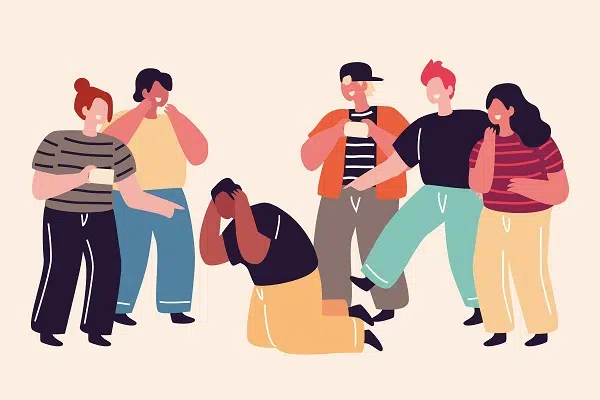
Gender Stereotyping in Games
Along with harmful racial stereotypes, video games are notorious for their gender stereotyping as well. Despite the stereotypes against women in video games, the stereotypes against men are also offensive. These harsh portrayals of gender could influence a young person long into their adult years, affecting their future romantic relationships.
- Over-sexualization and objectification of women
- Hyper-aggressive masculinity
The over-sexualization of female characters in video games is nothing new. The way women are drawn and designed, from body proportions to outfits, are meant to be sexualized. This can not only warp a heterosexual boy’s perception of women at a young age, but the impossible standards can seriously harm a young girl’s self-esteem.
There is perception that men in fighting games are emotionless killing machine. It is already a social norm for boys and young men to suppress their emotions. This is deeply unhealthy, and seeing the hyper-masculine, extreme aggression of male protagonists in video games could cause future personality issues down the road.
Damage to Physical Health
Since most video games require little to no movement, players can remain sedentary for the duration of the gaming session. The more time a person spends playing video games, the less time they are active. A sedentary lifestyle can have severe repercussions on a person’s health, quality of life, and lifespan.
In addition, many gamers consume energy drinks and snacks during late-night session, which contributes to their physical detriment.
Weight Gain and Obesity
Constant gaming can lead to obesity due to the lack of physical activity involved. Health problems can develop if a person doesn’t exercise the minimum amount recommended. If a gamer becomes heavily addicted and rarely stops playing, these risks skyrocket, and their potential diseases become more severe.
- Type 2 diabetes
- Hypertension
- Heart disease
- Stroke
- Certain cancers
There are a number of diseases direcly related to obesity, such as those listed above. While they do not kill immediately, many of these conditions sneak up on people who have led sedentary lives for decades. Video game obsession and addiction can easily spiral out of control if not controlled.
Other Health Risks
Below are some conditions that can be caused by obesity, but they can also occur independently. Constant video game playing can cause muscles to atrophy, weakening the bones underneath. Computer screens put out blue light, which affects vision, as well as the ability to sleep. All of these are potential problems that can spiral from video games.
- Osteoporosis
- Muscle atrophy
- Lowered immunity
- Sleep disorders
- Vision problems

Hygiene Issues
An important part of one’s physical health is their ability to take care of their personal hygienic needs. As video games become more important to someone, all other matters can fall by the wayside. This will affect the person caught up in the video games but also everyone in the household.
- Bathing
- Proper nutrition and hydration
- Dental care
- Proper waste management
Video games can be so captivating that a person may not be able to come up for air for days at a time. Basic human needs have to be met, but they will likely be met in the quickest and most convenient way possible at the detriment of the gamer. This could result in lots of fast food, a lack of water consumption, and wasted money.
Since bathing and tidying are not basic human needs, it is not uncommon for the gamer and their space to become filthy. Unclean dishes and surfaces can lead to bacteria growth. This is unhealthy for the gamer, their family members or roommates, and any pets coming in and out of the space.
Damage to Mental Health
On top of the damaging effects on physical health, video games can have deep psychological effects on gamers’ mental health. It’s important to treat mental health concerns with the same level of seriousness, since they can be just as traumatizing and deadly. People of all ages can be affected by the taxing psychological distress associated with living outside of reality.
The mental health concerns are listed below, but it is also important to keep future issues in mind, such as those that might be associated with VR technology in the near future.
Depression
If depression is on the rise, video games are not helping. The subject matter itself may not be depressing, but the all-consuming nature of video games can affect how brains react to feel-good chemicals.
- Low self-esteem
- Escapism
- Dopamine exhaustion
- Fatigue
- Lack of motivation
A person who spends too much time in a video game world may start to lose touch with their actual reality. In this case, they could feel detached and disconnected from those around them. Without a strong connection to anyone, their sense of self-worth could diminish. In turn, this will likely drive the person further into the video game for relief.
Video games are addictive because they offer players a reward system that activates dopamine release in the brain. If a person plays for a long time, more dopamine is released than that person would normally receive in that period of time. So, after stopping the game, the brain will miss the dopamine, causing dopamine fatigue.
Anyone who has experience with depression knows that fatigue and lack of motivation are tell-tale symptoms of the illness. Gamers usually stay up late into the night, wrecking their sleep schedules. They also tend to forgo their responsibilities in favor of playing.

Anxiety
Anxiety goes hand in hand with depression. Typically, where you find one, you find the other. Millions of people suffer from these mental illnesses regardless of video games. However, video games do nothing to curb its painful effects. In fact, as with depression, intense video gaming can exacerbate the problem.
- Social anxiety and agoraphobia
- Desire for solitude
- Maintaining high alert
If a person feels more comfortable playing video games than going about day to day life in the real world, they will likely withdraw to avoid feeling like an outcast. There is nothing wrong with being introverted. However, the problem arises when intense social anxieties and agoraphobia can be avoided.
Violent, fast-paced games require players to maintain constant vigilance. Gamers expect danger, though fictional, at all times. This fight-or-flight response is difficult to turn off when the game ends. Maintaining high alert causes an abundance of cortisol and can contribute to other health problems.
Addiction
Video game addiction has officially been named a mental illness. The term for the illness, “gaming disorder,” according to the World Health Organization, features the same basic tenets of any addiction. Because of the popularity and availability of games, the illness is less likely to be taken seriously.
- Prioritizing games above all else
- Ignoring any negative consequences
- Inability to control and overcome the desire to play
Gaming disorder is not listed in the DSM-5, as that manual was published before the illness was classified. However, it is important that people who suffer from this illness can be seen and helped. Not everyone who plays video games will become addicted, but those who do deserve to get the help they need to overcome the problem.
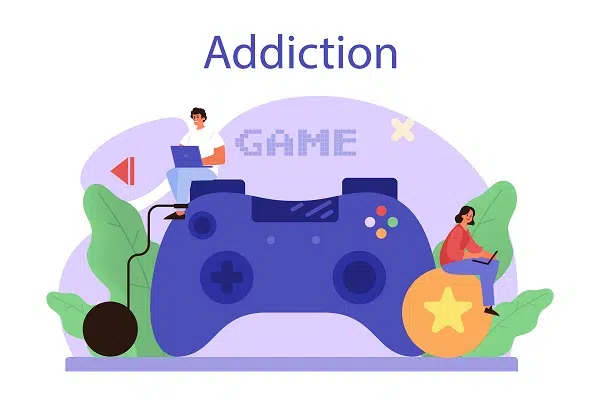
Loss of Productivity
Obviously, if someone is playing video games all the time, they are not using their time to do anything truly productive. If a person can juggle their responsibilities and play games in their free time, that is a healthy achievement. Unfortunately, video games often take over at the expense of more important things.
While the main people who have problems with a loss of productivity are children, it also affects adults.
Job and School Performance
Since video games are available on cell phones, most people can play them anywhere. This can be extremely detrimental to someone’s productivity at work or school. This can have drastic repercussions on their livelihood.
- Loss of concentration
- Missing due dates and assignments
- Absences
Children and adults who spend a great deal of time playing video games can exhibit signs similar to ADD and have trouble concentrating on tasks. This is because they are used to constantly darting their eyes to look for their next target, reward, etc. This can cause job performance and grades to slip.
Worse, some people become so entrenched in video game addiction that they stop showing up to school or work. No teacher, professor, or boss is going to accept this as a reasonable excuse. The circumstances, failing grades and lost jobs, can be dire and have lasting impacts on a person’s life.
Combatting Issues Caused by Video Games
There will always be video games of all kinds on the market. Luckily, there are ways to maintain a healthy relationship with them.
Some of the ways to do this include setting reasonable expectations and using certain software. But paying attention and learning about games and their various risks is also important. After all, the industry is constantly evolving.
Set Reasonable Expectations
You should discuss with your kids which video games are acceptable in the house. Importantly, talk to them about why. Let them know you are not putting your foot down because you are out of touch.
- Which genres are allowed?
- Age-appropriate content
- How often can video games be played?
If you yourself tend to become too wrapped up in video games, figure out your own limits. Have your significant other or someone in the household help you stay accountable and maintain your goals.
Invest in Limiting Software
Companies have developed software programs that allow users to set restrictions on computer gaming without making the entire computer useless in the interim. Users can set time limits on gameplay, and the program does the work.
- Limit Launcher
Limit Launcher allows parents and guardians to set controls on their children’s computer gaming without restricting the use of the entire computer or internet. The company knows that computers and the internet are absolutely crucial for research and homework in today’s age.
It does not make sense to prevent a child from doing homework or studying just to ensure they are not playing computer games. However, Limit Launcher allows them to stay on track without the distractions of computer gaming. Parents or guardians can give gaming access back at will.
Limit Launcher is an excellent service for anyone concerned about their child’s gaming, or even their own. Anyone can use parental controls.







